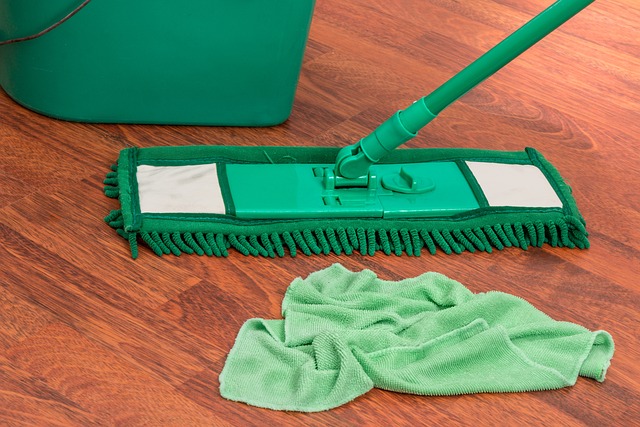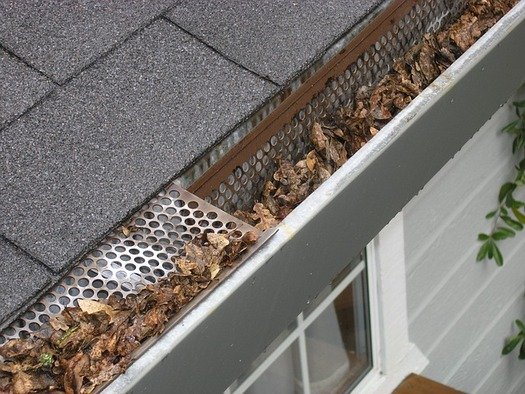Have you ever noticed how a noisy neighbour or the sound of traffic outside can disrupt your peace and quiet at home? Soundproofing is a solution that many homeowners turn to in order to minimize unwanted noise and create a more tranquil living environment. But did you know that regular cleaning plays a crucial role in maintaining the effectiveness of your home’s soundproofing?
In this blog post, we’ll explore the benefits of regular cleaning for your home’s soundproofing and why it should be an essential part of your maintenance routine. We all know the importance of cleanliness in our living spaces, but when it comes to soundproofing, it takes on a whole new level of significance. A well-maintained home not only looks aesthetically pleasing but also functions harmoniously in terms of acoustics.
From reducing unwanted echoes to dampening external noise, these benefits of regular cleaning go beyond just aesthetics and can significantly impact your quality of life. So, whether you’re a sound enthusiast looking to optimize your home’s acoustic environment or simply curious about how cleaning can elevate your living space, read on to discover how a cleaner home can lead to a quieter, more peaceful sanctuary.
Table of Contents
Understanding Soundproofing and its Importance
Before we delve into the benefits of regular cleaning for your home’s soundproofing, let’s first understand what soundproofing is and why it matters. Soundproofing is the process of reducing or eliminating sound transmission from one area to another, creating a quieter space. Whether it’s blocking out external noise or preventing sound from escaping a room, soundproofing can significantly enhance your quality of life at home.
Dust and Debris: The Silent Threat to Soundproofing
You might be surprised to learn that dust and debris can compromise the effectiveness of your soundproofing measures. Here’s why:
- Settling on Surfaces: Over time, dust particles settle on surfaces, including walls, floors, and windows. This accumulation can create tiny gaps and irregularities that allow sound waves to penetrate through, reducing the overall soundproofing performance.
- Blocking Sound Absorption: Soundproofing materials such as acoustic foam or panels rely on their ability to absorb sound waves. However, when they become coated with a layer of dust, their capacity to absorb sound diminishes, resulting in reduced soundproofing effectiveness.
- Airborne Dust Particles: Dust particles don’t just settle; they can also float in the air. When airborne dust comes into contact with soundproofing materials, it can settle into tiny crevices and pores, causing a decrease in their sound absorption properties.
See also our post on The Ultimate Guide to Cleaning and Maintaining Your Home’s Driveway
The Benefits of Regular Cleaning for Your Home’s Soundproofing
Regular cleaning is essential for maintaining the optimal performance of your soundproofing measures. Here are the key benefits:
1. Preservation of Soundproofing Effectiveness
Regular cleaning is the cornerstone of maintaining the effectiveness of your home’s soundproofing. Over time, soundproofing materials such as acoustic panels, foams, curtains, and weatherstripping can accumulate dust, dirt, and other contaminants. This build-up can significantly reduce their ability to absorb or block sound effectively. By routinely cleaning these materials, you ensure they remain in optimal condition, serving their intended purpose – to keep your home peaceful and quiet.
2. Prevention of Mold Growth
Certain areas of your home, such as basements or bathrooms, can be more susceptible to humidity and moisture. These conditions can create an ideal environment for mold growth, which can not only damage soundproofing materials but also adversely affect your indoor air quality. Regular cleaning helps to prevent mold from taking hold on your soundproofing elements, ensuring they remain in excellent condition while keeping your home safe and healthy.
3. Enhanced Longevity of Soundproofing Materials
Soundproofing materials are an investment in the comfort of your home. Regular cleaning helps protect this investment by extending the lifespan of these materials. When you clean soundproofing elements, you prevent dust and contaminants from causing premature wear and tear. By doing so, you not only save money but also continue to benefit from a quieter and more peaceful living environment.
4. Improved Aesthetics
Soundproofing materials are often visible in your living spaces, especially curtains, drapes, and acoustic panels. These materials contribute not only to the acoustic comfort of your home but also to its visual appeal. Regular cleaning ensures that these materials remain clean and well-maintained. Clean soundproofing elements are more visually pleasing, adding to the overall aesthetics of your home.
5. Enhanced Indoor Air Quality
Dust and debris that accumulate on soundproofing materials can contribute to poor indoor air quality. This is particularly important if you or your family members suffer from allergies or respiratory issues. Regular cleaning of soundproofing materials, such as vacuuming or wiping down surfaces, can help improve the air you breathe, creating a healthier home environment.
6. Reduction of Allergen Buildup
In addition to improving indoor air quality, regular cleaning of soundproofing materials helps reduce allergen buildup. Dust and other particles that accumulate on curtains, panels, and foam can become a breeding ground for allergens such as dust mites. By keeping these materials clean, you minimize the presence of allergens in your home, offering relief to allergy sufferers.
7. Prevention of Pest Infestations
Pests such as insects and rodents can find refuge in dusty or neglected soundproofing materials. Regular cleaning and maintenance help prevent these unwelcome guests from taking up residence in your home. By keeping soundproofing elements clean, you safeguard your living space from potential infestations and the associated problems they bring.
8. Enhanced Acoustic Performance
Regular cleaning of soundproofing materials is not just about keeping them visually appealing; it also directly impacts their acoustic performance. Clean surfaces, especially in the case of acoustic panels and foams, can absorb sound more efficiently. This means that your soundproofing materials will work at their peak performance, ensuring a quieter and more peaceful environment.
9. Preservation of Privacy
Privacy is a precious commodity in any home. Soundproofing helps maintain this privacy by preventing conversations and activities within your home from being overheard by neighbors or other family members. By regularly cleaning and maintaining your soundproofing materials, you ensure that they continue to serve their crucial role in preserving the confidentiality of your living space.
10. Reduction of Stress and Improved Well-Being
A quieter and more peaceful living environment has a profound impact on your stress levels and overall well-being. The absence of disruptive noises contributes to a sense of calm and relaxation. Regular cleaning of soundproofing materials plays a vital role in ensuring this peace, leading to a more content and harmonious life.
See also our post on 10 Importance of Cleaning Your Home’s Water Heater
Cleaning Tips for Soundproofing Maintenance
Now that you understand the benefits of regular cleaning for your home’s soundproofing, let’s explore some practical tips to help you maintain a soundproof environment:
- Dusting and Vacuuming: Use a microfiber cloth or a soft brush attachment on your vacuum cleaner to dust and clean soundproofing materials regularly. Pay attention to all surfaces, including walls, ceilings, floors, and windows.
- Washing or Wiping Surfaces: Depending on the type of soundproofing material, you may need to wash or wipe surfaces with a mild detergent or a recommended cleaning solution. Follow the manufacturer’s instructions to ensure proper cleaning without damaging the materials.
- Cleaning Air Vents and Filters: Dust and debris can accumulate in air vents and HVAC filters, affecting the air quality and potentially compromising the effectiveness of your soundproofing. Regularly clean or replace filters as recommended by the manufacturer to maintain optimal airflow.
- Removing Stains or Spills: Accidental spills or stains on soundproofing materials should be addressed promptly. Use appropriate cleaning methods or spot treatments recommended for the specific material to prevent permanent damage.
See also our post on 10 Benefits of Regular Dusting for Your Home or Business
Conclusion
Regular cleaning is not just about maintaining a tidy home; it plays a vital role in preserving the effectiveness of your home’s soundproofing. By keeping your soundproofing materials clean and free from dust and debris, you can ensure enhanced soundproofing performance, prolong the lifespan of your materials, improve air quality, and create a more visually appealing living environment. So, next time you reach for your cleaning supplies, remember that you’re not just tidying up, but also investing in a quieter and more peaceful home.














